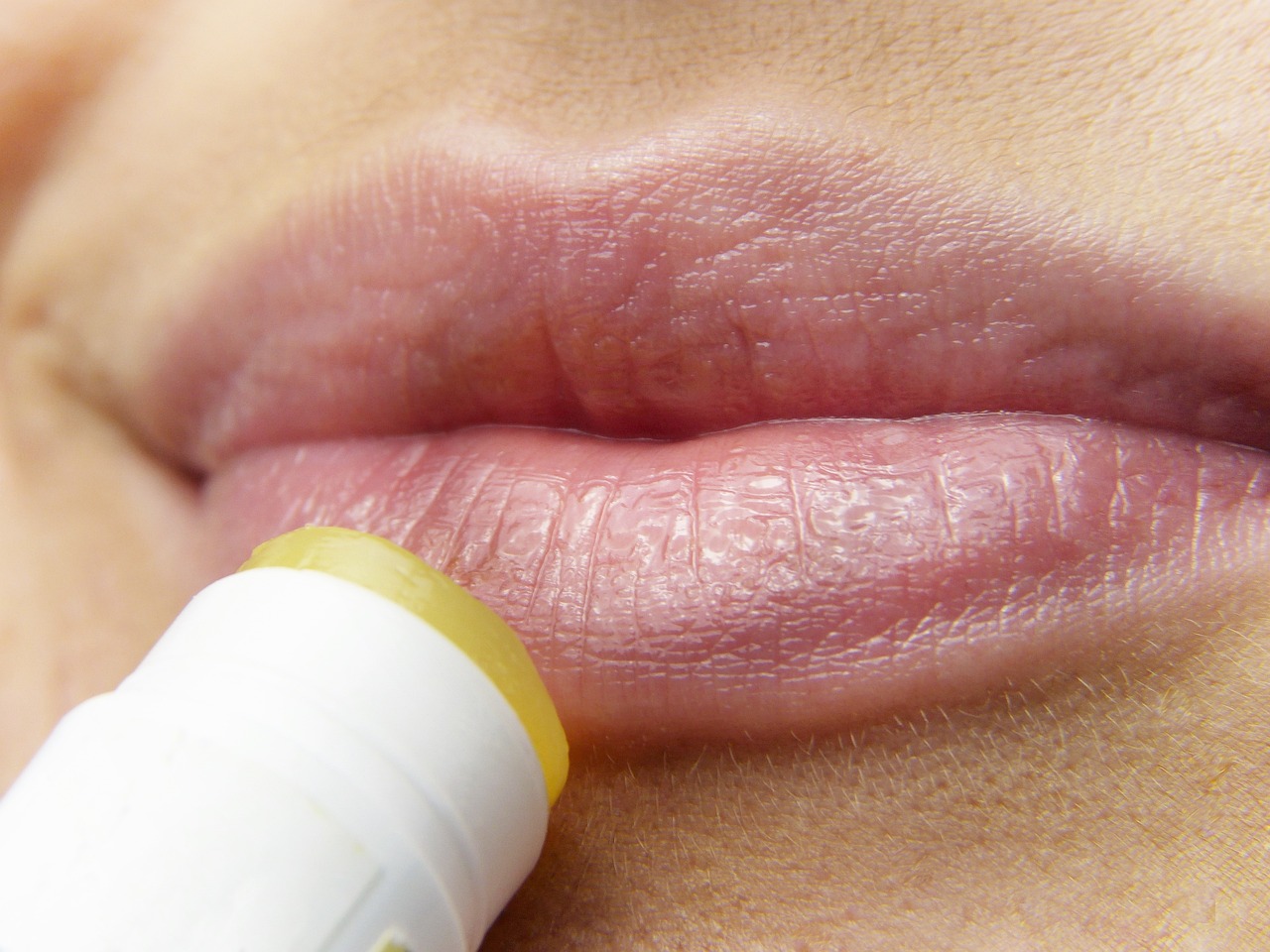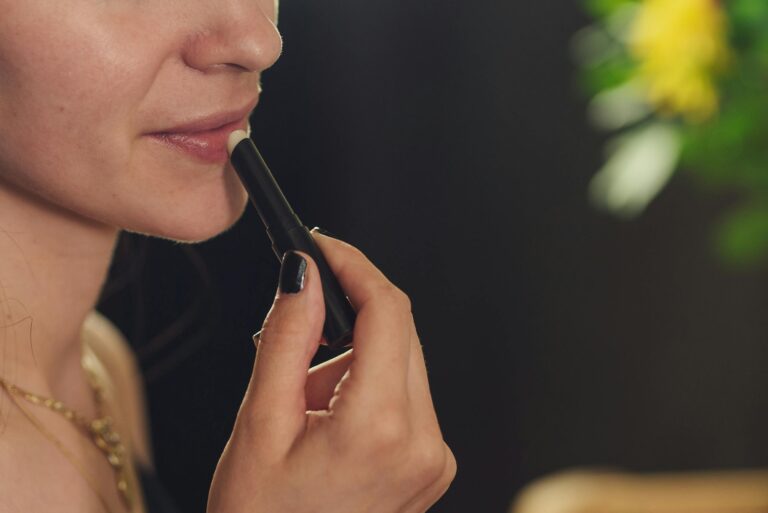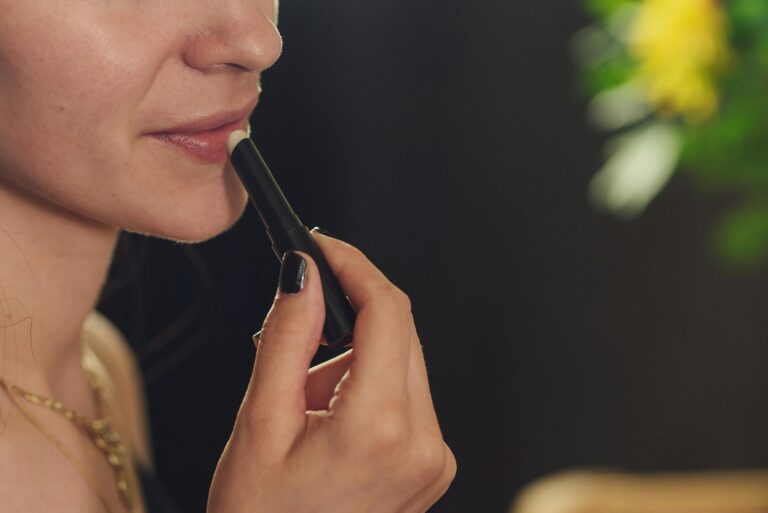Lips are often one of the first parts of our face to show signs of dryness, chapping, and aging. With the constant exposure to harsh weather conditions, lip-licking, and the use of lip products that contain harsh chemicals, it’s no wonder why many of us struggle with achieving smooth and healthy lips.
This comprehensive guide will give you everything you need to know about lip care and the best practices for achieving soft and supple lips.
From the right ingredients to look for in lip balms to the proper exfoliation techniques, this guide is here to help you put your best pout forward.
Understanding Lip Anatomy
Understanding the anatomy of the lips is crucial in proper lip care. The lips are comprised of three main layers: the epidermis (outermost layer), the dermis (middle layer), and the submucosa (innermost layer).
The epidermis is the protective layer that guards against external factors such as weather and harmful substances. The dermis is where the sweat and oil glands are located, which play a crucial role in maintaining the moisture and hydration levels of the lips. Finally, the submucosa contains the blood vessels and nerves responsible for providing sensations and nourishment to the lips.
Maintaining the natural oils and hydration levels in the lips is essential for overall lip health. When these levels become imbalanced, the lips can become dry, chapped, and prone to cracking. Proper lip care routines and avoiding harsh products can help maintain the health and appearance of the lips.
Common Causes of Lip Dryness and Chapping
Lip dryness and chapping are common issues faced by many people. Here are some of the most common causes of lip dryness and chapping:
1. Exposure to Harsh Weather Conditions
Extreme temperatures, wind, and sun can strip your lips of natural oils, leaving them dry and chapped. Cold winter air can also cause the lips to dry out and crack, while hot and dry summer air can also have the same effect.
2. Lip-licking
While it may seem like a quick fix for dry lips, the saliva can actually make the problem worse. The enzymes in the saliva break down the delicate skin on the lips, making them even more susceptible to dryness and chapping.
3. Using Harsh Lip Products
Many lip products contain harsh chemicals, such as alcohol and fragrances, that can strip the lips of natural oils and dry them out. It’s important to choose lip products that are gentle and nourishing to avoid this problem.
4. Dehydration
When the body is dehydrated, the skin and lips can become dry and chapped. Drinking plenty of water and staying hydrated is essential for maintaining healthy lips.
5. Nutrient Deficiencies
Certain nutrients, such as vitamin B and iron, play an important role in skin health, including the lips. A deficiency in these nutrients can cause the lips to become dry and chapped.
6. Allergic Reactions
Some people may develop an allergy to certain lip products or ingredients. This can cause redness, itching, and dryness of the lips, which can lead to chapping.
7. Medical Conditions
Certain medical conditions, such as eczema, can cause dryness and chapping of the lips. If you’re experiencing persistent lip dryness or chapping, it’s important to seek medical help to rule out any underlying medical conditions.
Lip Care Routine
A proper lip care routine is essential for achieving smooth, healthy lips. Here are the steps to a comprehensive lip care routine:
1. Hydration
Keeping your body hydrated is crucial for overall health, including the health of your lips. Make sure to drink plenty of water throughout the day to help keep your lips hydrated from the inside out.
2. Choose the Right Lip Balm
Look for lip balms that contain moisturizing ingredients such as beeswax, shea butter, or coconut oil. Avoid lip balms with ingredients such as menthol, camphor, and salicylic acid, which can be too harsh for delicate lip skin. Apply a generous amount of lip balm to your lips as needed, especially before bed and after exfoliating.
3. Proper Exfoliation
Gently exfoliating your lips once a week can help remove dead skin cells, revealing smoother, more hydrated lips. Use a soft toothbrush or a lip scrub brush specifically designed for exfoliating. Be gentle when brushing your lips, and only exfoliate for a few seconds.
4. Sun Protection
Your lips are just as susceptible to sunburn as the rest of your skin. Make sure to protect your lips by applying a lip balm with SPF when spending time outdoors, especially during peak sun hours.
5. At-home Lip Care Treatments
Using natural remedies such as coconut oil, honey, or aloe vera into your lip care routine can help soothe and hydrate dry, chapped lips. You can also make your own DIY lip scrub using ingredients such as sugar, olive oil, and honey.
At-Home Lip Care Treatments
At-home lip care treatments are an excellent way to achieve smooth and healthy lips without having to spend a lot of money on products or treatments. Here are some of the most popular and effective at-home treatments for lip care:
Coconut Oil
Coconut oil is a natural moisturizer that can help hydrate and nourish dry and chapped lips. Simply apply a small amount of coconut oil to your lips using your finger or a cotton swab and leave it on for a few minutes. Rinse off with warm water and repeat as needed.
Honey
Honey has natural antibacterial and anti-inflammatory properties that can help soothe and heal dry and chapped lips. Apply a small amount of honey to your lips and leave it on for 5-10 minutes. Rinse off with warm water and repeat as needed.
Aloe Vera
Aloe vera gel has natural hydrating and healing properties that can help soothe and moisturize dry and chapped lips. Simply apply a small amount of aloe vera gel to your lips and leave it on for a few minutes. Rinse off with warm water and repeat as needed.
DIY Lip Scrubs
Lip scrubs can help remove dead skin cells and promote the growth of new, healthy skin. To make a DIY lip scrub, mix equal parts of sugar and coconut oil or honey and gently rub it onto your lips in a circular motion. Rinse off with warm water and repeat as needed.
When to Seek Medical Help
It’s normal for lips to become dry or chapped from time to time, but in some cases, the dryness or chapping may be a sign of a more serious condition. If the following symptoms persist despite home care treatments and lip balm use, it’s important to seek medical help:
- Painful or blistering lips: If your lips are painful, swollen, or covered in blisters, this may indicate a serious skin condition such as cold sores, impetigo, or a bacterial infection.
- Chronic lip dryness or chapping: If your lips are frequently dry or chapped, despite consistent use of lip balm, this may indicate an underlying medical condition such as eczema, dermatitis, or an autoimmune disorder.
- Swelling of the lips or face: Swelling of the lips or face can be a sign of a serious allergic reaction. If you experience swelling in these areas, seek medical help immediately.
- Changes in the appearance of the lips: If you notice changes in the appearance of your lips, such as discoloration, sores, or growths, it’s important to have them evaluated by a doctor.
Conclusion
Our comprehensive guide to lip care for smooth lips has provided a comprehensive overview of how to achieve and maintain healthy, smooth lips.
From understanding lip anatomy to the importance of hydration, exfoliation, and sun protection, this guide has outlined the best practices for lip care. Additionally, it’s highlighted the benefits of using natural remedies and DIY lip scrubs, as well as when to seek medical help.
By following these tips and incorporating them into your daily routine, you can take control of your lip health and achieve the soft, supple, and youthful-looking lips you desire. Remember to always be gentle with your lips and avoid using harsh lip products.
Prioritize hydration and exfoliate regularly to remove dead skin cells, and always protect your lips from the sun. With a little care and attention, your lips will thank you with a smooth and beautiful pout.



